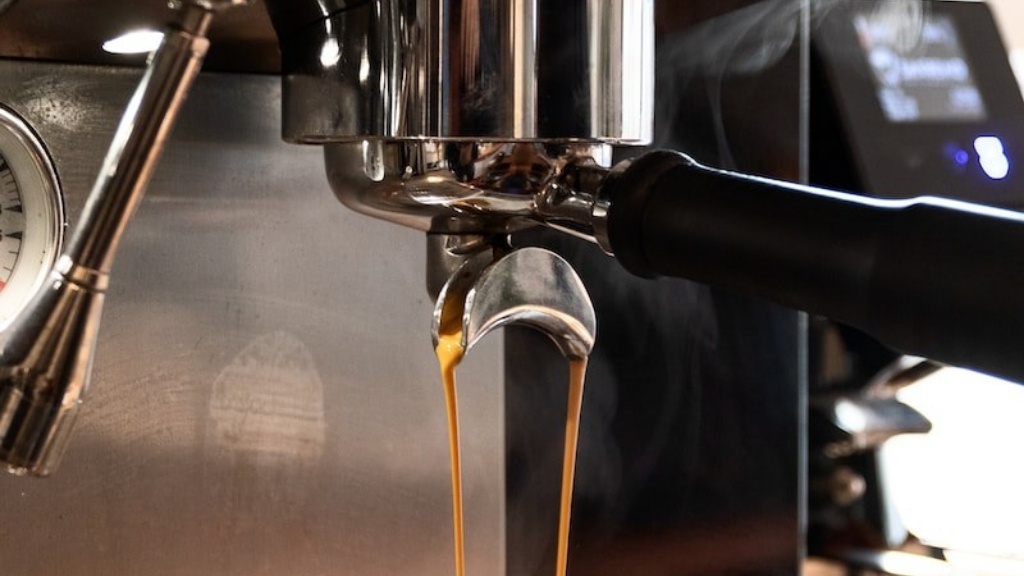Why does my nose run when I drink coffee? It is an age-old question that has been asked – and perhaps endured – by coffee lovers everywhere. It is a common issue that is often left unexplored, yet it can have real implications for our health and wellbeing. In this article, we will explore the causes and consequences of a runny nose when consuming coffee, along with providing insights into preventative methods that can keep us feeling our best.
Firstly, it is important to understand why drinking coffee could be causing our nose to run. Medical experts agree that caffeine is a central stimulant to our systemic autonomic nervous system. This means that the hormones released by our body in response to the consumption of caffeine can cause an increase in stimulation in the nasal mucosa. This leads to the production of extra mucus, resulting in a congested nose, or what is commonly known as a “runny nose”.
Besides nasal irritation, those of us that suffer from drinking coffee may also experience other symptoms related to the consumption of caffeine. One such symptom that is commonly observed is increased heart rate, which is due to the stimulatory effects of caffeine on our vagal tone. This can be a result of the caffeine causing the body to be more sensitive to stimuli such as sound. While an increase in heart rate is typically not dangerous in itself, it may cause additional stress levels in individuals that already suffer from a high stress lifestyle.
Physical Factors
There are also physical factors that may play into why drinking coffee can lead to a runny nose. Specifically, the temperature of the beverage may cause the body to overreact to the stimuli. For instance, if a person drinks a hot cup of coffee, the body may respond by causing the nose to run. This is due to the body reacting to the sudden change in temperature of the drink.
Besides heat, the amount of caffeine consumed could also be playing a role. Caffeine, although beneficial for alertness and concentration, can also lead to adverse reactions when consumed in overabundance. In some cases, this may take the form of a runny nose. This could be a signal from the body telling the individual to reduce their caffeine intake for the sake of their health.
Allergies
For some individuals, drinking coffee may trigger a reaction from allergies rather than simply being a response to the caffeine. Although not as common as the other causes of a runny nose, it is still possible that this could be the reason why some people experience this issue.
In this case, a person’s immune system may be responding to either the caffeine or to a particular brand of coffee. This could be due to a sensitivity to one ingredient or the other. In some cases, this may also be related to food allergies or other forms of sensitivities that the person may have.
Preventative Measures
Given that there are a number of possible causes for why our nose could be running after drinking coffee, it is important that we take preventative measures to avoid these occurrences. Firstly, it is important to determine the underlying cause for the runny nose. If it is due to an allergy, then one may want to switch to a different brand of coffee that does not trigger the same reaction.
Furthermore, those of us with a high stress lifestyle may want to consider reducing our caffeine intake as this may be exacerbating the problem. Finally, individuals should also be aware of the temperature of the coffee that they are drinking. If the coffee is too hot, then the body may be reacting to the sudden change in temperature and causing the nose to run.
Natural Remedies
For those looking for more traditional methods of treating allergies or a runny nose, there are a number of natural remedies that can be used. For instance, some individuals may wish to try breathing through a cotton cloth or other soft material in order to help open the nasal passages. Others may want to use an over the counter nasal spray to help reduce inflammation in the nasal passages.
Finally, many individuals find that they can reduce the symptoms of their runny nose by drinking plenty of water. The water helps to thin out the mucus and can make the nasal passages more comfortable. Additionally, individuals may wish to use a neti pot which is commonly used to flush out the sinuses and rid them of any allergens that may be causing the problem.
Alternative Methods
For those of us that are looking to avoid the potential side effects of consuming too much caffeine, there are a number of alternative methods that can be used to get that same boost of energy. For instance, many people find that drinking herbal teas or decaffeinated coffee are great options for providing the energy boost without the need for all the added caffeine.
Additionally, many individuals find that their energy levels can be greatly increased through the consumption of natural energy drinks. Such drinks typically contain natural ingredients such as green tea or guarana, which provide a steady energy boost without the excessive caffeine content that is frequently found in traditional energy drinks.
Other products such as fitness and health supplements are also great alternatives for providing additional energy. These products are typically made with natural ingredients and are specifically designed to help provide an increase in energy and focus, without any of the potential side effects of caffeine.
Raising Awareness
In conclusion, it is important to raise awareness around the issue of a runny nose after drinking coffee. It can sometimes go unnoticed and if left untreated can become a serious issue. That is why it is important to understand the causes and possible treatments for this condition. By being aware of the potential causes and taking preventative measures, we can be sure that we remain healthy and well.
In addition to understanding the causes, it is also important to explore other options for energy that are available. As we’ve seen, there are plenty of alternatives for coffee that can provide the same boost with fewer of the risks associated with caffeine. Hopefully, by raising awareness about the potential consequences of our coffee drinking habits, we can all ensure that we remain healthy and energized.




